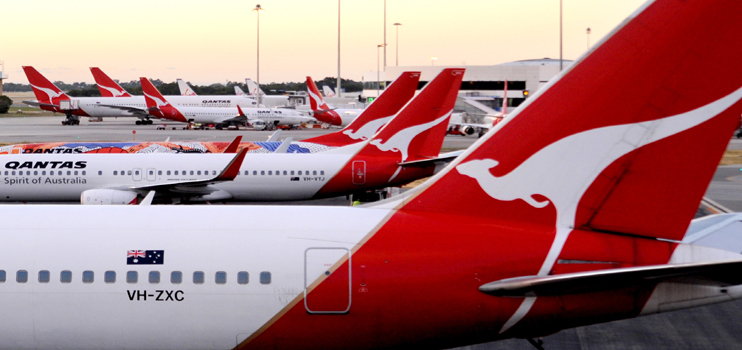Qantas may face new aircraft funding squeeze, S&P warns
15 February, 2018
4 min read
By joining our newsletter, you agree to our Privacy Policy


A Qantas decision not to spend more on fleet renewal may backfire if it needs to replace ageing planes at the same time it resumes paying company tax, a new report has warned.
Despite the fanfare surrounding delivery of Boeing 787 Dreamliners, the report by S& P Global Ratings notes that investment by Qantas in new aircraft has remained subdued in recent years as it returned capital to shareholders.
Read: Qantas to start 787 San Francisco services.
This has seen the average fleet age of the Qantas fleet rise to just below 10 years, putting it behind its Asian peers but still ahead of US carriers.
S&P estimates the airline in mid-2017 had almost 12,500 seats more than 14 years old — the equivalent of 72 Boeing 737-800s or 53 Boeing 787-9s.
The ratings agency said the airline’s most recent guidance indicated aircraft investment would not grow until the year ending June 30, 2020, "at which point a sizeable funding task potentially looms".
"Since its financial turnaround in fiscal 2015, Qantas has used surplus capital to fund shareholder returns rather than to grow invested capital,'' S&P credit analyst Graeme Ferguson said. "We do not view this as sustainable.”
Qantas has not paid company tax since 2011, despite record profitability, and S&P believes tax losses carried forward could see this situation remain until 2020.
This could see Qantas could face the need to spend a sizeable amount on aircraft at an inopportune time, Mr Ferguson said..
“That's because the airline's investment in new aircraft may coincide with the resumption of company tax payments," he said. "Moreover, Qantas' financial framework limits the extent to which investments can be debt-funded, and the Qantas Sales Act may complicate the airline's access to equity."
The report found Virgin Australia’s younger fleet meant it was better able to take a limited “capital holiday” and put off fleet investment.
“Virgin Australia Holdings Ltd.'s fleet is young by domestic and global standards and we believe it can afford to take a limited capital holiday without becoming uncompetitive, Mr Ferguson said. “We believe any cash windfall will importantly help Virgin to become more self-sufficient financially."
Australia's major carriers have settled into a duopoly and S&P noted the industry profit pool remained at record highs, with neither airline looking to restart the profit-draining capacity war that ended in May, 2014.
It said the sector had benefitted from disciplined capacity growth, structurally lower fuel prices, less adversarial industrial relations and a stable macroeconomic environment.
These tailwinds were likely to remain even if rising Australian dollar-denominated fuel prices and increased international competition had to the potential to remove “some of the earnings gloss”.
But the analysts warned the Australian aviation industry's current high barriers to entry were not impregnable.
“If an extended capital holiday leaves incumbent carriers with an old and uncompetitive domestic fleet, the door could be left ajar for a new entrant,’’ they said. “We are not there yet, not even close, but these longer-term trends are worth monitoring.”
Qantas has confirmed it expects to start paying tax again soon.
But it denied that it was facing problems funding aircraft acquisitions, saying its balance sheet was "as stong as it has ever been", its debt levels were towards the bottom of the target range and it had a flexible aircraft order book.
“Around 60 per cent of our existing aircraft are debt free and our recent aircraft purchases have been in cash because our business is performing strongly,” it said.
Get the latest news and updates straight to your inbox
No spam, no hassle, no fuss, just airline news direct to you.
By joining our newsletter, you agree to our Privacy Policy
Find us on social media
Comments
No comments yet, be the first to write one.

